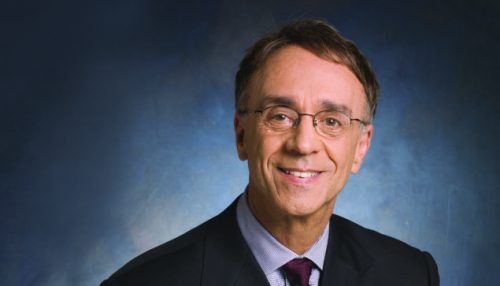Thought Leadership

Lee Davies
Monday, July 23, 2018If nature abhors a vacuum, that goes double for many people who face the media. We seem to be living in an age when many people feel obliged or entitled to exercise their First Amendments rights, without any forethought to potential consequences. I approach this from the perspective of someone who has been interviewed countless times – in my role as spokesperson for Schering-Plough and Merck – and in my current position as executive coach and media strategist/counselor at Makovsky.
Headlines are rife these days with high-profile celebrities underappreciating the value of restraint. A few current examples:
Getting the obvious out of the way first, we can spend entire columns on whether the president got “only one word wrong” (this was NOT a vocabulary quiz) in Helsinki this week. The fact is he said what he said, and it is now a matter of public record. And the fallout from that is also now a matter of public record.
Even beyond that, loose lips are rampant. John Schnatter, founder of Papa John’s Pizza, wouldn’t or couldn’t listen to his public relations counselors, who were running him through his crisis preparedness paces after his misstep earlier this year regarding a critical comment about NFL players “taking a knee” during the playing of the National Anthem. That statement resulted in his stepping down as company CEO. Last week, Forbes was quick to report that during his role-playing exercise, he piled on his earlier remarks with the use of a racial slur. For that, he lost his Chairman status, his trusteeship at the University of Louisville and his name on the university’s stadium.
The actor Henry Cavill, perhaps best known for his Superman stints, recently chose to comment on the #MeToo movement for GQ Australia. Apparently feeling that his positive support was insufficient, he augmented his remarks by stating that he was backing off from “chasing” women for fear of being accused of rape or sexual assault.
Something compelled entrepreneur Elon Musk to charge a heroic Thai cave rescuer with being a pedophile. Hubris at having his offer to help rebuffed or his claim that he was partly responsible for the rescue mission rejected? You will never win taking on a “sacred cow”: children, animals…and heroes.
What should we as communicators take away from these lapses in judgment?
- Silence Truly Is Golden. As I always counsel my clients, if you do not want to see it in print, online or hear it on radio or broadcast, do not let it come out of your mouth. You cannot be quoted – or misquoted – for something you haven’t said.
- Always Be Prepared. There is no “winging it” in public relations. Even after a long career in this field, I practice what I want to say, as well as what I don’t want to say (and how to avoid those potential pitfalls). I anticipate, hope for the best, yet plan for the worst.
- Apologies Don’t Work. I used to hold that people don’t say “I’m sorry” enough. Now people say “I’m sorry” all the time, believing it’s a panacea for all ills. Uttering the words does not undo the damage done by the previous statements. In fact, it now only makes for awkward acts of insincere contrition.
- Never Answer a Question That Hasn’t Been Asked. This cannot end well, as it takes you off message and down the proverbial slippery slope. Stick to your points.
- It’s Not About You. In media interviews, pride definitely goeth before a fall. While it may be tempting to have the last word – or smack back – stay focused on your desired outcome from the interview. Be memorable for your content, not your behavior.
- Privacy is a Fantasy. In our current 24/7 news cycle, everything you do and say is discoverable. Before you communicate in any form through any platform, think about how it would resonate in a court of law…or on the first page of The New York Times or Wall Street Journal.
- Silence Truly Is Golden. Yes, I said this earlier. However, I’ve noticed that most people grow uncomfortable during media interview pauses. Whether created intentionally or not, a brief empty space in a conversation is not an invitation to speak because you think it is expected. Sitting with the silence, repeating your last point, or asking if there are further questions are all preferable options.
I’m sure you all have file folders of your own snafu observations that have made you cringe. Please feel free to share them with me at ldavies@makovsky.com and @leeadavies. And do continue to offer your guidance and expertise to those in need. The interview you save may be your own.
Lee Davies is Senior Vice President, Director of Client Services of Makovsky’s Health Practice.










